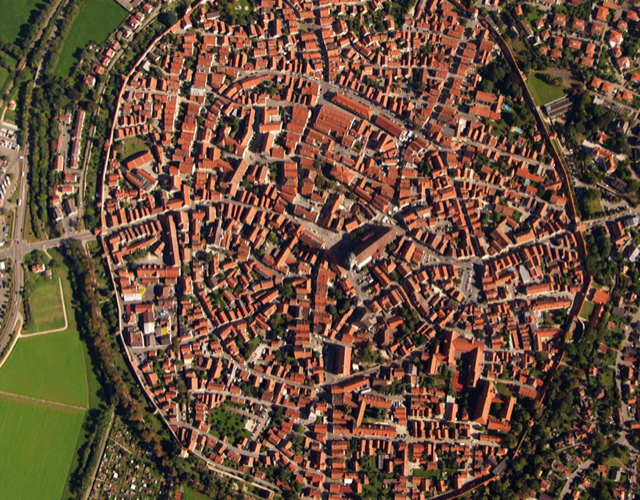Random German Stuff that Matters - great content auf Deutsch
January 23, 2015, [MD]
Why introduce German content in English?
One issue that I have not heard much discussion about, is the challenge of finding interesting material in foreign languages. In your own culture and language, you have gotten to know authors through school, through popular media, recommendations from friends, etc. But when you begin exploring a foreign language, it's often like starting from scratch again. I remember walking around in the libraries in Italy, having no idea where to start, or what kinds of authors I might enjoy.
This is made worse by the fact that I am typically much slower at reading in a foreign language, and particularly in "skimming". This means that even though I can really enjoy sitting down with a nice novel, and slowly working through it, actually keeping up with a bunch of blogs, skimming the newspaper every day, or even doing a Google-search and flitting from one page to the next, becomes much more difficult.
Some things are easier these days - it's typically easier to get access to media over the Internet, whether it be movies, podcasts, or ebooks (although this differs a lot between different languages, it is still difficult finding Indonesian movies or TV-shows online, and even Norwegian e-books are hard to come by online), but navigating is still difficult. When I began learning Russian again, I was amazed at the number of very high-quality English blogs that talk about Russian modern literature (places like Lizok's bookshelf, XIX век and Languagehat), which really inspired me to continue working on my Russian, to be able to read the books they so enthusiastically discussed.
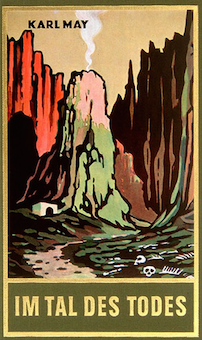 These last two years have been a bit of a renaissance for my own usage of German. It's a language I learnt in school in Norway, I read my first novel in it when I was 16, and have visited the country a number of times. However, for the past 10-15 years, I did not have many opportunities to use it, and did not seek out German novels, podcasts or anything like that. However, spending a very enjoyable month visiting a lab at the University of Munich gave me a chance to reawaken my language skills and interest. I then did a short visit last winter, and spent about three months in Berlin this summer.
These last two years have been a bit of a renaissance for my own usage of German. It's a language I learnt in school in Norway, I read my first novel in it when I was 16, and have visited the country a number of times. However, for the past 10-15 years, I did not have many opportunities to use it, and did not seek out German novels, podcasts or anything like that. However, spending a very enjoyable month visiting a lab at the University of Munich gave me a chance to reawaken my language skills and interest. I then did a short visit last winter, and spent about three months in Berlin this summer.
In addition to the visits, what got me in to reading was ironically Karl May. Not well known in North America, he is the all-time best-selling German author from the 19th Century, writing a large amount of fantastical tales of travel and adventure around the world, from places he had never visited. I had heard about him, but never read anything, and decided that I would try it out for fun. I found "Deutsche Herzen, deutsche Helden" as a free download and began. It was certainly a fantastic tale, taking us from Istanbul, to Egypt, through the Wild West and ending up in Siberia.
Long like a Bollywood-movie, it felt like each part could have been it's own substantial book. Full of handsome and brave Germans, it was certainly not always politically correct (although I have read far worse things in English from the colonial times), but quite enjoyable, and at the end, I realized I had read almost 3000 pages (these things happen on a Kindle), and that my German reading speed had improved measurably as a result.
Since then, I have found a great number of enjoyable German novels and podcasts, and I wanted to share some of these with you. If you speak German as a foreign language, but were not quite sure where to start, perhaps some of this will be useful. And if you don't speak German, perhaps you'll be inspired to learn. Of course, this is just a sampling of what I've randomly come across, not an exhaustive survey, and it unapologetically is stuff that I like and enjoy, no attempt at objective critique.
Podcasts and radio
I love going for walks and listening to podcasts and audio books. I've also found that audio supports language learning and maintenance in a different way than reading; in the same way that reading a lot can make you a better writer, I find myself speaking more fluently and confidently after listening to audio in a language, even if I haven't actually spoken it for a long time. A good example was when I met someone speaking German in a Moscow airport a few years ago. At that time, I hadn't been speaking German for years, but just finished listening to Momo, and was surprised by my fluency.
Germany has a very vibrant private podcasting scene, and also very high-quality TV and radio stations. Most of these have so-called Mediathek, where you can easily find programs and links to feeds (like ARD's Mediathek).
Radio programs I like
DRadio Wissen Einhundert
Einhundert is my favorite German radio program. Every week, they choose a theme, which can be very broad ("Starting over", "Hitting the road"), but also more specific (a program about when half a million Russian soldiers left Eastern Germany). In each case, they find people with interesting stories that somehow relate to the theme (often in very different ways).
It's a bit similar to This American Life or RadioLab (the latter of which I love as well), but they have managed to find their own voice. It is difficult to put the finger on what is so brilliant about this program, but somehow the combination of interesting stories and good editing makes for great listening. I often tell my wife about stories I head in this podcast, two of the more memorable ones:
- A son learns Arabic as an adult, and begins to understand his father in a whole new way
- A girl has never been to her homeland, Iran, and is not allowed to travel there. Her boyfriend goes in her place, as her eyes and ears
News
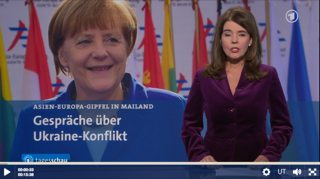 You can watch or download the video of the main evening news in Germany, Die Tagesschau, and sometimes I watched the news on my iPad while doing dishes. However, my preference is to download the audio and listen while walking. Surprisingly, I find I never really miss the visuals. I appreciate the focus on domestic and international politics, rather than "a man was hit by a bus yesterday".
You can watch or download the video of the main evening news in Germany, Die Tagesschau, and sometimes I watched the news on my iPad while doing dishes. However, my preference is to download the audio and listen while walking. Surprisingly, I find I never really miss the visuals. I appreciate the focus on domestic and international politics, rather than "a man was hit by a bus yesterday".
Listening regularly, you get a good understanding of the main political issues in Germany and the EU, and how they are developing. It's been particularly interesting following the Ukraine-conflict through German eyes. I also often listen to Tagesthemen, which tends to go a bit more in depth. There is also Bericht aus Berlin, which is a weekly political magazine.
Other academic programs
 DRadio Hörsaal is an interesting format, where they first interview a researcher about their research, followed by a public lecture made by the same person. The topics vary widely, and I remember hearing a fascinating talk about how we now play classical music faster, than when it was authored.
DRadio Hörsaal is an interesting format, where they first interview a researcher about their research, followed by a public lecture made by the same person. The topics vary widely, and I remember hearing a fascinating talk about how we now play classical music faster, than when it was authored.
SWR Wissen is a series of traditional radio documentaries, where a journalist tells a story, intermixed with some interviews. Topics vary very widely, but somehow the good story-tellers are able to make many topics that don't sound very enticing into interesting experiences. (Looking at the site now, I see that they also make transcripts of all programs available in epub-format - quite innovative.)
Podcasts I like
Chaosradio
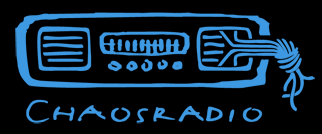 Chaos Computer Club is a historically famous network of hacker-clubs in Germany, and their Berlin chapter produce a monthly radio program/podcast called Chaosradio. The goal is to explain technical concepts to a more lay audience, so they usually have members of the club moderated by a radio moderator. The shows last something like three hours, and it can be quite enjoyable to hear the friendly bantering of the participants. For example, I quite enjoyed the show last winter about the NSA surveillance scandal and how mass-digital surveillance works.
Chaos Computer Club is a historically famous network of hacker-clubs in Germany, and their Berlin chapter produce a monthly radio program/podcast called Chaosradio. The goal is to explain technical concepts to a more lay audience, so they usually have members of the club moderated by a radio moderator. The shows last something like three hours, and it can be quite enjoyable to hear the friendly bantering of the participants. For example, I quite enjoyed the show last winter about the NSA surveillance scandal and how mass-digital surveillance works.
CRE: Technik, Kultur, Gesellschaft
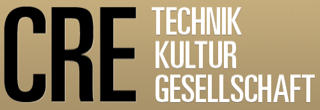 Through Chaosradio, I came across CRE, which began as an extension to Chaosradio, but now has a life of its own. It's run by Tim Pritlove, who is an incredibly prolific German podcaster, and the format is basically Tim sitting down with someone who is a specialist on a certain topic, and just talking. Sometimes the conversations will go over 3-4 hours, and somehow listening to two very intelligent people in a nice conversation can be quite interesting and calming. Some of my favorite episodes:
Through Chaosradio, I came across CRE, which began as an extension to Chaosradio, but now has a life of its own. It's run by Tim Pritlove, who is an incredibly prolific German podcaster, and the format is basically Tim sitting down with someone who is a specialist on a certain topic, and just talking. Sometimes the conversations will go over 3-4 hours, and somehow listening to two very intelligent people in a nice conversation can be quite interesting and calming. Some of my favorite episodes:
- Wikidata, the new semantic Wikimedia project, and how we think about ontologies and hierarchies to organize knowledge
- Stadtplanung, city planning from Alexandria and Babylon to Russian suburbs, Syria and Berlin
- Bundeswehr, the role of the German army in international conflicts
 Tim also hosts a few other noteworthy podcasts, including Logbuch:Netzpolitik, which reminds me of many English-language podcasts, where two people sit around every week and chat about "what's new" related to Internet and technology politics. A more structured interview-podcast is Fokus Europa which attempts to explain the structure of modern Europe, focused mostly on the European Union. I found the first two episodes Geschichte der Europäischen Einigung and Deutschland und Europa quite interesting.
Tim also hosts a few other noteworthy podcasts, including Logbuch:Netzpolitik, which reminds me of many English-language podcasts, where two people sit around every week and chat about "what's new" related to Internet and technology politics. A more structured interview-podcast is Fokus Europa which attempts to explain the structure of modern Europe, focused mostly on the European Union. I found the first two episodes Geschichte der Europäischen Einigung and Deutschland und Europa quite interesting.
 Staatsbürgerkunde is a great example of oral history. Martin Lutz interviews his parents Martin and Christine Lutz about their life in the DDR, mixing general knowledge and history with their own personal recollections and anecdotes. I particularly enjoyed the episode on Weissensee, the drama series I mention below.
Staatsbürgerkunde is a great example of oral history. Martin Lutz interviews his parents Martin and Christine Lutz about their life in the DDR, mixing general knowledge and history with their own personal recollections and anecdotes. I particularly enjoyed the episode on Weissensee, the drama series I mention below.
TV, movies and series
This will unfortunately be a very short section, and I would love further suggestions. I enjoy watching German movies when I come across them, but I have no good online source to find them (Netflix only has a few). I have also been looking for good German drama series, and would love to find something like the great Danish crime dramas (like The Bridge). However, I'll mention one great drama series and a serie of documentaries.
Deutschland von oben is a series of documentaries using a combination of satellite and aerial footage to show different aspects of the geography of Germany. There are several themes, "City", "Land" and "Water", and we go from looking at the majestic golden eagles in Berchtesgaden, to how current street patterns are the result of the structure of the initial Roman settlements. It gave me a much better understanding of the diversity of German landscapes and regions, and although it can get tiring, the dramatic music and voices go well with the sweeping vistas.
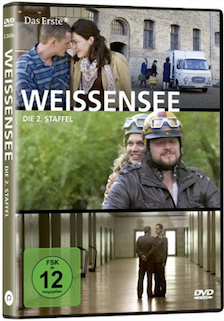 All the episodes are available in streaming HD, and there is also a feature-length cinema version.
All the episodes are available in streaming HD, and there is also a feature-length cinema version.
Weissensee is a mini-series in two seasons about life in East-Berlin during the DDR-times. The series focus on two families, a Stasi-family and a rebellious artist family, whose lives interact in various ways. There are definitively aspects of Romeo and Juliette, and cliches from other mini-series, but it's very well done, and apparently very period-authentic. I very much enjoyed both seasons, and also the discussion about the series on the Staatsbürgerkunde podcast mentioned above.
Literature
Reading fiction is one of my main ways of approaching a foreign language, and German is a very welcoming host. It has become much easier now that we have access to e-books, and literature portals. I remember when I began learning German and Italian 15 years ago, I would go into a library and be completely lost as to where to start. These days, we have great sites like Krimi-couch, or even the literature section in Die Zeit for more high-brow literature.
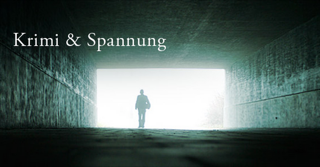 In general I quite enjoy crime novels, and I found a German crime writer tradition that felt quite similar to the Scandinavian crime that I grew up with. It tends to be tightly bound to a specific region or town, and to spend just as much time on the personal lives of the investigators, as well as the perpetrators and victims of the crime, sometimes also touching upon societal trends and challenges. This is not the hard-boiled crime noir from smokey San Francisco PI-offices, but rather a great way to examine different tensions in society, different occupational groups, life in small and big cities, etc.
In general I quite enjoy crime novels, and I found a German crime writer tradition that felt quite similar to the Scandinavian crime that I grew up with. It tends to be tightly bound to a specific region or town, and to spend just as much time on the personal lives of the investigators, as well as the perpetrators and victims of the crime, sometimes also touching upon societal trends and challenges. This is not the hard-boiled crime noir from smokey San Francisco PI-offices, but rather a great way to examine different tensions in society, different occupational groups, life in small and big cities, etc.
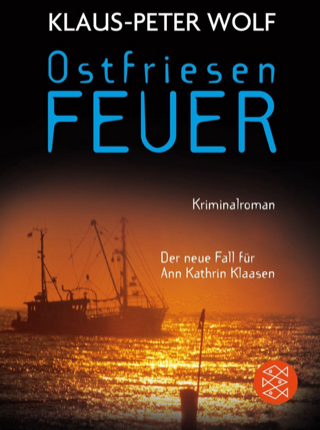 One of the things I have really missed in Canada, is regionally based crime stories. I think Toronto has many stories waiting to be told, and not just Toronto, but specific areas - Scarborough, the Junction, white-collar crime on Bay street, corruption at Queens Park, etc. In Germany, the concept "regiokrimi" (regional crime) even has it's own website. Apparently there are even small towns that commission crime novels set in their area for the town's anniversary. This has led to some critical voices, complaining that literary aspects are overlooked in an attempt to stuff as many local references as possible, but I've come across a number of authors that I really enjoyed.
One of the things I have really missed in Canada, is regionally based crime stories. I think Toronto has many stories waiting to be told, and not just Toronto, but specific areas - Scarborough, the Junction, white-collar crime on Bay street, corruption at Queens Park, etc. In Germany, the concept "regiokrimi" (regional crime) even has it's own website. Apparently there are even small towns that commission crime novels set in their area for the town's anniversary. This has led to some critical voices, complaining that literary aspects are overlooked in an attempt to stuff as many local references as possible, but I've come across a number of authors that I really enjoyed.
Klaus-Peter Wolf has a fascinating history on Wikipedia. Apparently he almost works like an investigative journalist, often diving deep into the various thematics that he then fictionalizes, going so far as to set up a fake mailorder-marriage company before he wrote a book about the trade with women, and living with a youth gang, before writing a book about youth criminality and violence. However, my favorite is his series of novels from Ost-Friesland, an area I had never heard about before, and now feel that I know well enough that I could navigate the area without a map.
Another set of great novels set in the area come from Sven Koch.
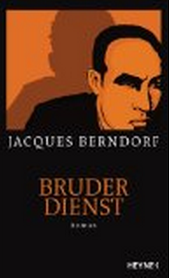 Jaques Berndorf writes about another area of Germany that I was not familiar with, the Eifel. In this case, the protagonist is an investigative journalist, rather than an investigator, and somehow he always gets tangled into complex issues, often involving the state and the secret services. A cranky old man living alone in the countryside, there always seems to be an intriguing female showing up just in time to join him in his investigations.
Jaques Berndorf writes about another area of Germany that I was not familiar with, the Eifel. In this case, the protagonist is an investigative journalist, rather than an investigator, and somehow he always gets tangled into complex issues, often involving the state and the secret services. A cranky old man living alone in the countryside, there always seems to be an intriguing female showing up just in time to join him in his investigations.
Reminds me of some earlier (80's-90's) Swedish crime, which also talked about investigative journalists, the Swedish secret-services and government, and their connections to foreign powers, etc.
Jenk Saborowski writes about the fictional European Federal Police, and agent Solveigh Lang, who travels Europe to catch criminals. Intriguing fiction, which reflects a modern Europe connected with high-speed rail and the absence of borders, but still divided by different bureaucracies, languages and cultures.
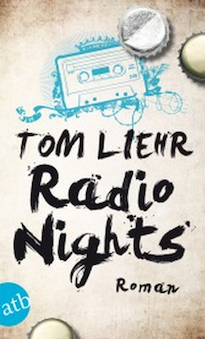
Tom Liehr has been compared to Nick Hornby, and it's a comparison that makes a lot of sense. He writes about young men, fixated on music, DJing, being a radio host, or going on crappy chartertours. Great writing, and very rich characters.
There are so many more authors I could list, here are some very quick introductions
- Nele Neuhaus: Decent crime set in "Vordertaunus", rural area near Frankfurt. Somehow always ends up with a situation in which a large number of people could have had motive and possibility to kill the victim.
-
Sebastian Fitzek: "Psychodrama"-bestseller. Really enjoyed Passagier 23 and Amokspiel, but others of his novels are too "psychological", with the I-voice seemingly going crazy, unable to believe anything he sees/remembers, etc.
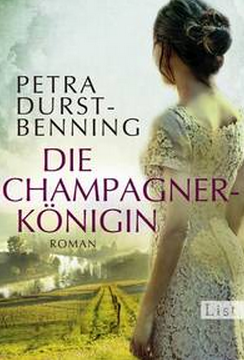
- Petra Durst-Benning: Interesting and enjoyable historical fiction from various periods in Germany, usually centered around strong women.
- Birgit Schlieper: Very interesting and well written novels about difficult issues facing young people, with a strong psychological aspect. Powerful and thoughtful.
- Katharina Peters: Fascinating crime novels from the other German coast, Rügen, often involving the Nazi-history of the area.
-
Martin Suter: A series of crime novels, and some free-standing novels, usually dealing with the Swiss upperclass. Charmingly written. Best free-standing novel is Der Koch, amazing writing (although it looses some of the steam after the beginning).
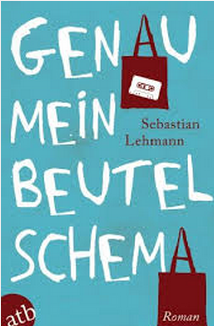
- Sigrid Ramge: OK crime stories set in Baden-Württemberg, but felt like very "regio-krimi", almost like she wants to give you a detailed tour of the area, rather than just building it into the story.
- Manuela Kuck: Well-written crime from the Wolfsburg-region.
- Sebastian Lehmann with Genau mein Beutelschema, hilarious and well-written ironic take on the different areas and subcultures in Berlin. Perfect reading while staying in Neukölln last summer.
Gute Vergnügen!
Stian Håklev January 23, 2015 Toronto, Canada comments powered by Disqus
